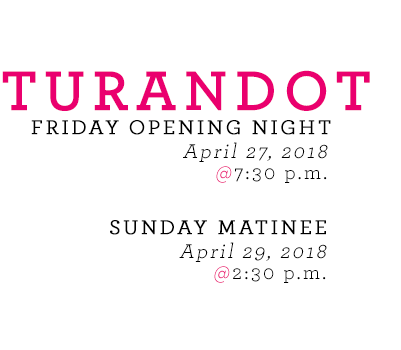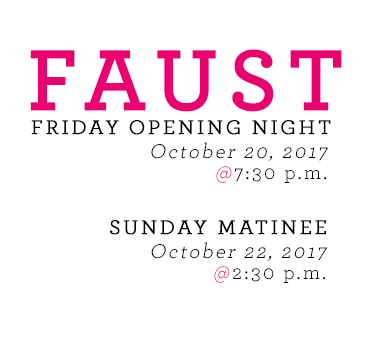

Giacomo Puccini’s final and most musically adventuresome opera – a sweeping saga of pride, passion and devotion. This is the legendary fable of a princess whose beauty men literally died to woo. Turandot – which includes the world’s most loved tenor aria, “Nessun dorma” – is a distinctive finale to Puccini’s career, combining and perfecting all that was great in his art.
Set in ancient China, the Princess Turandot requires any suitor to answer correctly three riddles. If he fails, he must die. Calaf sees Turandot and falls immediately and deeply in love, accepting the challenge of the three riddles. He answers each riddle correctly, infuriating the princess.
Calaf tells her that if she discovers his name before daylight, he will accept death instead of marrying her. Only Liù, the slave girl who secretly loves Calaf, knows his true name. The slave girl Liù sings of her love in “Tu che di gel sei cinta”, and Turandot tortures her more until finally Liù takes her own life to save Calaf.
Calaf reproaches Turandot for her cruelty, then with a passionate kiss reveals his name to the princess, placing his fate in her hands. When Turandot is asked for Calaf’s name, chastened by emotion, she replies simply: “Love.”
Sung in Italian with English titles projected above the stage.

The classic tale of ambition, love, redemption and deals with the devil. Charles Gounod’s first great success, establishing his international reputation, vividly comes to life in this classic production designed by Earl Staley and reimagined by the youthful vision of stage director Omer Ben Seadia.
When Faust curses science and faith, the devil, Méphistophélès, appears with an offer the aging scholar can’t refuse. Faust sacrifices his soul in return for regaining his youth and love. In “Salut! demeure chaste et pure,” he declares his love for the innocent Marguerite. She rejects Faust until his gift wins her to his heart as professed in “Ah, je ris de me voir” (The Jewel Song).
Marguerite falls in love with Faust, but then Faust kills her brother, Valentin, and abandons her. Desolate and devastated, in prison, her child with Faust dead by her own hand, Marguerite pleads to heaven for mercy. As she dies, a chorus of angels surrounds her spirit and proclaims her salvation.
Sung in French with English titles projected above the stage.
Ready to Renew or Become a Subscriber?
Now’s the time to guarantee your seats!
Call (918) 582-3133 or purchase your subscription online: